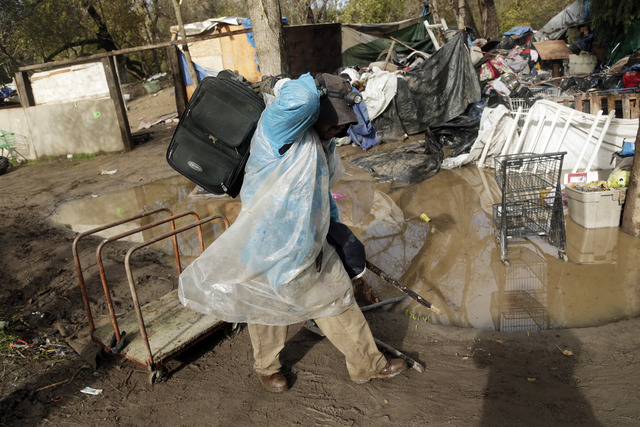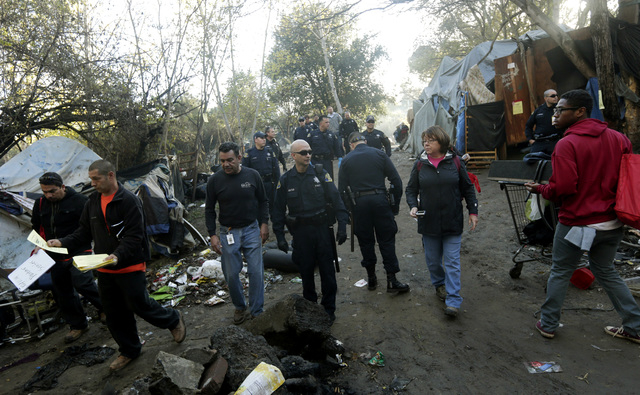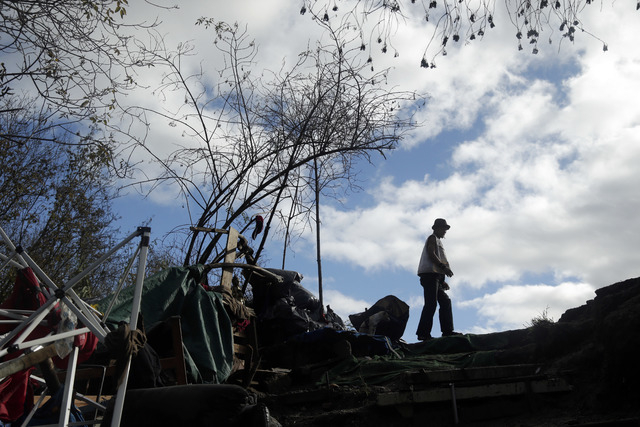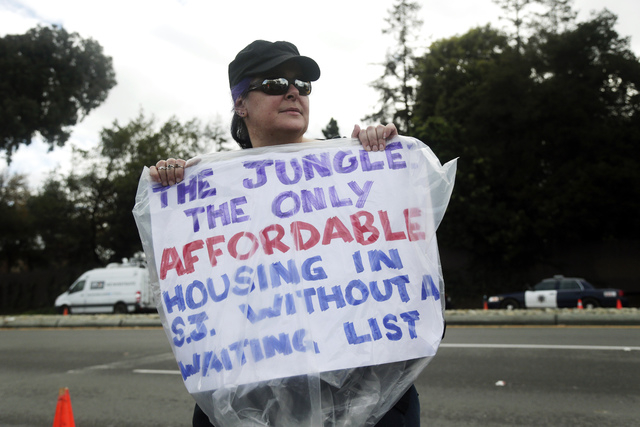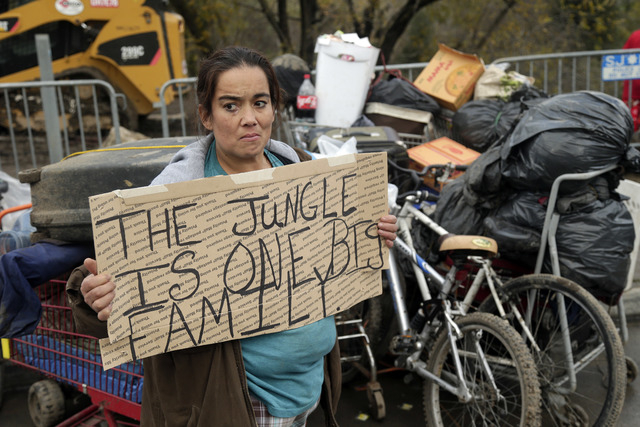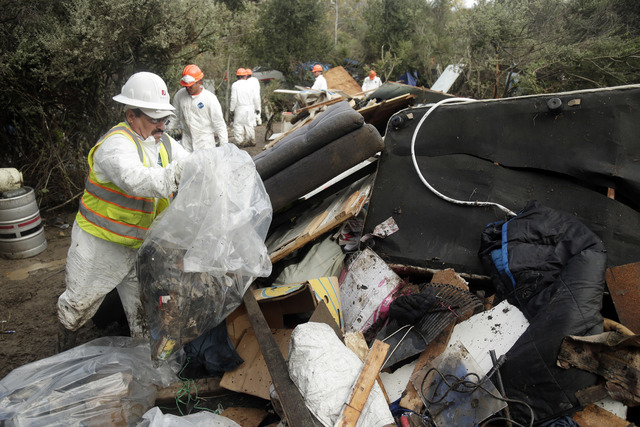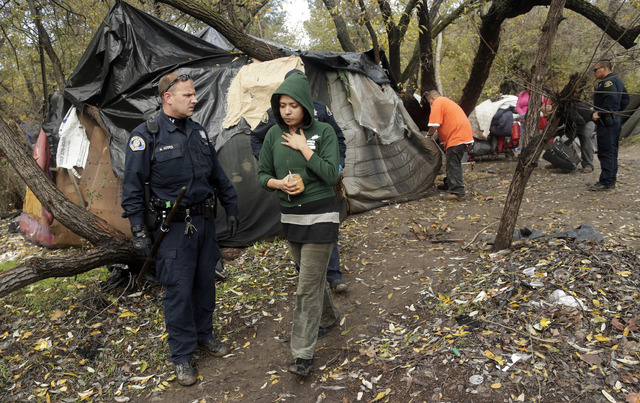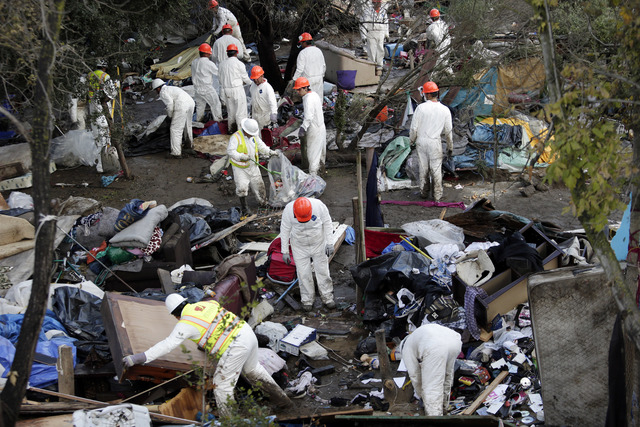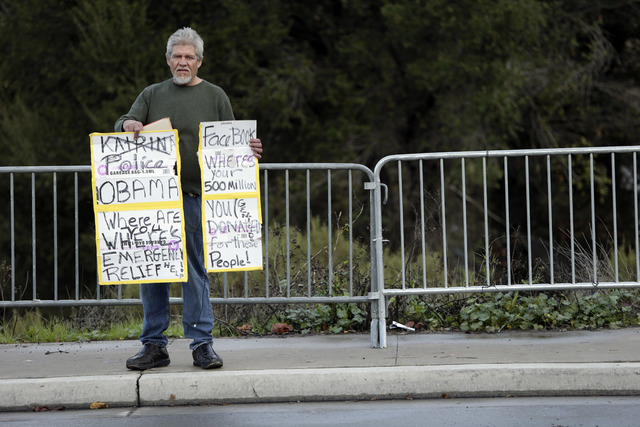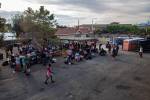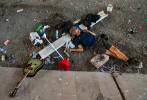Silicon Valley homeless camp cleared out
SAN JOSE, Calif. — Police and social-service workers on Thursday began clearing away one of the nation’s largest homeless encampments, a cluster of flimsy tents and plywood shelters that once housed more than 200 people in the heart of wealthy Silicon Valley.
Al Palaces, a former truck driver who moved in about eight months ago, was among those ordered to leave the camp known as the Jungle, which city officials have been trying to eliminate for years.
“I just grabbed whatever I could because I don’t want to go to jail,” he said, standing next to an overloaded shopping cart stuffed with muddy plastic bags.
On Monday, people living in the camp were given until dawn Thursday to leave or face arrest for trespassing. By Thursday morning, about 60 people were left at the muddy, garbage-strewn site.
Nancy Ortega sobbed as she watched tractors load garbage into trash trucks. A passing motorist shouted at those who had just been evicted.
“People drive by and look at us like we’re circus animals,” she said.
Many people had trouble dragging their belongings out of the camp through ankle-deep mud.
“It’s junk to everyone else. But to us, these are our homes,” said Ortega, who said she had been in and out of jail and struggled with addiction and mental illness.
By midmorning, dozens had been moved out after abandoning most of their possessions, but some of the homeless remained.
Valentine Cortes, who said he was a journeyman construction worker, had no plans to leave his makeshift shelter built into a steep, muddy slope.
“I don’t know why people got all chaotic today,” he said. “We don’t have to go.”
Asked about the warning that anyone who stays could be jailed, he shrugged and said, “Then I guess I’ll be arrested.”
Animals also roamed the square-mile camp, some of them pets and others wild. Rats could be seen running through the muck.
A few dozen protesters gathered at the site holding signs reading “Homeless people matter” and “Stand with The Jungle.”
The encampment stands in stark contrast to the surrounding valley, a region that leads the country in job growth, income and venture capital.
Palaces said he liked the Jungle better than the streets because people would bring food but not bother the residents.
“Even a job wouldn’t give me a house” because housing prices are so high, he said.
Officials planned to try to find shelter for the night for those homeless people connected with social services. Anyone not linked with social services still has to leave, San Jose homelessness response manager Ray Bramson said.
Several homeless-assistance groups also stepped in to help. HomeFirst, the largest provider to homeless people in Santa Clara County, has a shelter nearby with 250 beds, including 27 set aside for camp residents. Another 50 beds are open in a nearby cold-weather shelter.
“This feels terrible,” said Jenny Niklaus, the agency’s chief executive officer. “People are up to their calves in the mud dragging their stuff into the street.”
San Jose has spent more than $4 million over the last year and a half to solve problems at the encampment.
In the last month, one camp resident tried to strangle someone with a cord of wire. Another was nearly beaten to death with a hammer. And state water regulators have been demanding that polluted Coyote Creek, which cuts through the middle of the camp, get cleaned out, Bramson said.
Personal property confiscated Thursday was to be stored for 90 days before being disposed of in March.
The last time officials cleared out the camp was in May 2012, when about 150 people were moved out.
Dismantling the Jungle is a massive job. About 30 contractors in white hazardous-materials suits and hard hats joined other workers. More than two dozen police officers were also on hand.
It will take several days for trucks and bulldozers to haul out vast amounts of refuse and human waste. Heavy machinery will be used to fill in excavated areas where people had been living underground.
For some, the sudden abandonment of so many improvised homes was a bonanza.
Dau Nguyen muttered to himself as he picked through a trash heap, pausing to wash some of the items in an aluminum-foil bin.
“I wait for somebody to leave,” Nguyen said, “and then everything is mine.”



